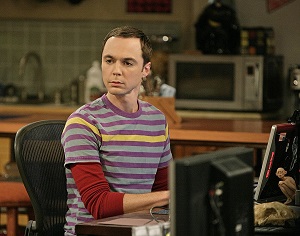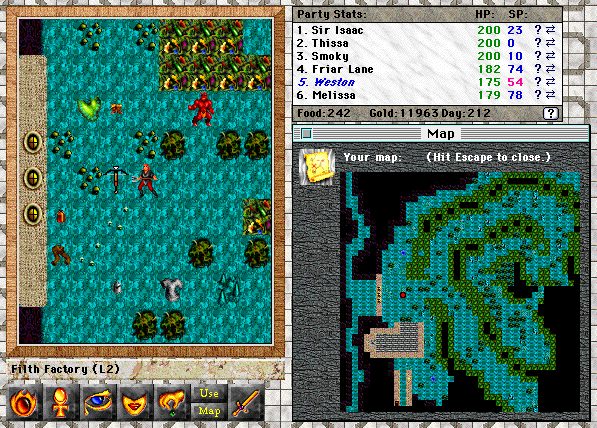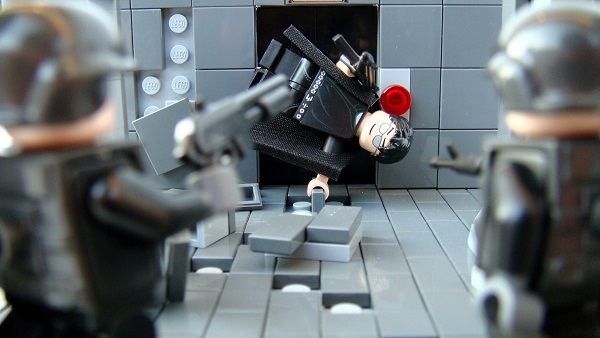equilibrium
— issue #12 {April 2015} —
.editorial
Hello, and welcome to the twelfth issue of Equilibrium. This is a milestone issue, since we celebrate a whole year! Thank you all for for sticking around! :)
I'm sure you're familiar with sayings like "it's a small world" or "what are the odds?" that people say when a coincidence occurs. I've recently read a great article explaining that for most events which people perceive as coincidences, there is a mathematical proof which confirms that they are not coincidences at all, or something along these lines.
I thought I had saved the article in my Evernote notebook, which I use as a pool of interesting articles that are worth of sharing through this publication, but I couldn't find it anywhere. That inspired me though to share with you one of the biggest coincidences I've personally experienced.

"This would be one of those circumstances that people unfamiliar with the law of large numbers
would call a coincidence."
In the beginning of December 2007, I was living in Thessaloniki, a large city in the north of Greece, home of the sports team I support, ARIS. The story took place at a football game between ARIS and AEK Athens. The stadium was packed with supporters from both teams, so about 20.000 people were there that day. I ended up going to the game alone, so I occupied a random seat among other people. As it usually happens in this kind of circumstances, at half-time I started chatting with people around me about the game.
The half-time break didn't last 15 minutes as usual though. The opponent team's fans started throwing flares and various other objects (unfortunately, this is typical behaviour in Greek football), so the referee along with the police decided that they had to evacuate the stadium of all of the opponent team's fans to continue the game. That happened only after more than an hour.
In the meantime, I continued chatting with a guy next to me, who was in his mid-fifties, who was also watching the game alone. After a while, he asked me where I was from (I'm from a city around 300Km away from Thessaloniki). When I told him, he said "Oh, it's been many years since I've been there. I had a very good friend with whom we served in the army together. I haven't spoken to him in the last few years, after I lost his phone number. His name is Christos, but I can't remember his last name." He paused, to try and remember it.
By the way, that's a typical Greek reaction when you tell someone where you are from. He will try to remember a list of persons who have a relation to that place and then tell you their names to check if you know them, although the chances of this happening are quite slim!
"Goudoulakis", he said, "Christos Goudoulakis; I remembered!" It took me a few moments to realise what has just happened, and then I told him "Nice to meet you, my name is Stathis Goudoulakis". With his eyes wide open, he asked "What's your relation to Christos?" "He's my father", I replied.
Needless to say, we were both amazed and couldn't believe that this coincidence (?) occurred. What were the chances that among 20000 people, I sat right next to my father's buddy from 30 years ago, and we only talked enough time to each other to realise it because that half-time delay had happened. It's a small world after all! :)
As always, enjoy the issue!
– Stathis
.blogs (interesting reads from around the web)
If ICANN only charges 18¢ per domain name, why am I paying $10?
— webmasters.stackexchange.com, 2014
Some nice answers regarding to what's going on behind the scenes in the domains market.
What I learned making a living on eBay — unicornfree.com, 2015
I was always wondering how people make (or used to make) money on eBay.
The original indie dev: How one man made 22 games in 22 years, mostly from his basement — venturebeat.com, 2015

"In my early games, I had a spell called Create Quickfire. Quickfire is this fire that expands and kills everything uncontrollably, so you could walk into a dungeon, make Quickfire, and walk outside and wait a couple minutes. Then you’d go back in, and everything was dead.
That is ludicrous. There is no way that any professional game designer would consider that good design. And yet people loved it. I can’t do that anymore. I am constitutionally incapable of doing that. I envy my younger self for being so unconcerned."
Inventing Favicon.ico — ruthlessray.wordpress.com, 2013
A short story on how favicon came into existence.
An Imaginary Town Becomes Real, Then Not. True Story — npr.org, 2014
"This is the story of a totally made-up place that suddenly became real — and then, strangely, undid itself and became a fantasy again. Imagine Pinocchio becoming a real boy and then going back to being a puppet. That's what happened here — but this is a true story. It's about a place in upstate New York called Agloe."
.images (worth a thousand words)
Rolex Milgauss — instagram.com

If you're not into watches (like me), almost all of them will look alike to you, but the story behind this particular one (as posted by Jason Fried on Instagram) is quite fascinating: "This Rolex Milgauss from the 70s was built for scientists who worked near strong magnetic fields (which messed up the accuracy of their watches). So Rolex designed the Milgauss with a soft iron faraday cage protecting the internals. Problem solved. Know your customer!"
.podcasts (sometimes is better to listen)
The Five-Minute Geek Show — fiveminutegeekshow.com
The Five-Minute Geek Show is "a twice-weekly show about web development and everything around it. It's one topic per episode about front-end, back-end, mobile, project management, design, entrepreneurship... Whatever; if it's geeky, it fits!
I really like this podcast. Its episodes are between 5 and 10 minutes, so they are short and easy digestible, and I find most of the topics so far quite interesting. I discovered it around episode 25 (at the time that you receive this it will have around 35 episodes) and I listened to all of them in a couple of days.
.books (physical or electronic)
Do Androids Dream of Electric Sheep? — wikipedia.org
Do Androids Dream of Electric Sheep? is a science fiction novel written by Philip K. Dick, published in 1984. If you haven't heard about it, you might be more familiar with Blade Runner, a modified film adaptation of the novel. The book presents a day in the life of bounty hunter Rick Deckard, as he tracks down renegade androids who have assumed human identities in a post-apocalyptic world where animals (real or artificial) are rare and the human population has largely migrated off-world. So, do androids dream? I really hope they do...
.videos (for education or entertainment)
Lego Matrix Lobby Fight Scene — youtube.com

A stop motion animator called Snooperking created this clip, recreating the famous lobby fight scene from Matrix using Lego. Snooperking worked for about 160 hours within a period of three months, resulting to a quite impressive outcome!
Halt and Catch Fire — wikipedia.org
Halt and Catch Fire (the title refers to the assembly mnemonic HCF) is an American drama series which is set in the Silicon Prairie of Texas in 1983 and depicts a fictionalized insider's view of the personal computer revolution. I really love books, movies, or series which focus on that period of time and the birth of many of the computer companies which then took over the technology world.
.non-profits (for a good cause)
Best Buddies — bestbuddies.org
"Best Buddies is a non-profit organisation dedicated to establishing a global volunteer movement that creates opportunities for one-to-one friendships, integrated employment and leadership development for people with intellectual and developmental disabilities (IDD)."
.bye
Thanks for reading Equilibrium!
If you've enjoyed reading it, consider spreading the word to your friends (the link is for a customisable tweet).
If you want to contact me, you can reply directly to this email.
Photo credits: Lego Matrix by Brandon Griffith; Sheldon Cooper by CBS; Exile III by Spiderweb Games.
P.S. If someone forwarded you this newsletter and want to subscribe, click here.